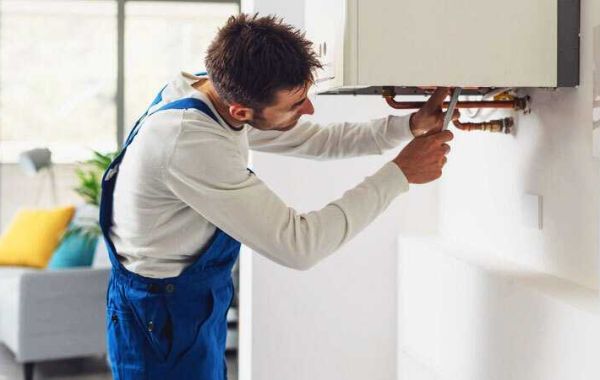Your trusty water heater, often taken for granted, plays a crucial role in ensuring a comfortable and convenient life. From hot showers to clean dishes, it's an appliance we heavily rely on. However, when your water heater malfunctions, it can turn your world upside down. In this article, we'll discuss the common issues that necessitate emergency water heater repairs and what you should do to ensure you're never left in the cold.
Common Water Heater Issues
Leaking Water Heater
A leaking water heater can be a homeowner's worst nightmare. It not only wastes water but can also cause structural damage to your home. Addressing this issue promptly is essential.
No Hot Water
Imagine turning on the shower only to be greeted by icy cold water. If your water heater isn't producing hot water, it's time to explore the problem's source and seek immediate repairs.
Strange Noises
If your water heater starts making unusual noises, it's a sign of internal issues. Ignoring these sounds can lead to bigger problems down the road.
Pilot Light Problems
The pilot light is the heart of your water heater. If it keeps going out or won't stay lit, you might need emergency repair services.
Importance of Timely Repairs
Avoiding Costly Replacements
Neglecting minor water heater issues can lead to complete breakdowns, necessitating expensive replacements. Timely repairs can save you a significant amount of money.
Ensuring Safety
Faulty water heaters can be dangerous, increasing the risk of fires or explosions. Repairing the issue promptly is crucial for your family's safety.
Signs You Need Emergency Water Heater Repair
Sudden Drop in Water Temperature
A sudden drop in water temperature is a clear indication of a problem. Don't endure cold showers; get your water heater repaired quickly.
Puddles around the Water Heater
Water pooling around your water heater is a surefire sign of a leak. Repairing it promptly prevents further damage.
Rusty or Discolored Water
If the water coming out of your taps is discolored or has a metallic taste, it's time for immediate action. Your water heater might be corroding inside.
DIY Troubleshooting
Checking the Power Supply
Before calling in the professionals, make sure your water heater is getting power. A tripped circuit breaker or blown fuse may be the cause of the issue.
Testing the Pressure Relief Valve
Your water heater has a pressure relief valve that should be checked regularly. If it's malfunctioning, it can cause problems.
When to Call a Professional
Licensed and Experienced Technicians
Not all water heater problems can be fixed by DIY methods. When in doubt, call a licensed and experienced technician to assess the situation.
The Repair Process
Inspection and Diagnosis
When a technician arrives, they will inspect your water heater, diagnose the issue, and discuss the necessary repairs with you.
Necessary Repairs
The repairs may include fixing leaks, replacing faulty components, or addressing any other issues identified during the inspection.
Testing and Quality Assurance
After repairs are complete, the technician will test the water heater to ensure it's working correctly and safely.
Preventive Maintenance
Regular Flushing and Cleaning
To extend the life of your water heater and prevent future breakdowns, consider regular flushing and cleaning.
Anode Rod Replacement
Replacing the anode rod every few years can help prevent corrosion and extend the life of your water heater.
Conclusion
Your water heater is a vital appliance in your home. When it malfunctions, it's essential to address the issue promptly to ensure your safety, comfort, and savings. Whether it's a minor problem or a major malfunction, professional repair services can get your water heater up and running in no time. Don't let water heater issues leave you in the cold; act swiftly to enjoy the warmth you deserve.
FAQs
How often should I flush my water heater?
- Flushing your water heater every 6-12 months is generally recommended to prevent sediment buildup.
What's the average lifespan of a water heater?
- On average, a well-maintained water heater can last 10-15 years.
Can I repair my water heater if it's leaking?
- Minor leaks may be fixable, but for safety and long-term reliability, it's advisable to consult a professional.
Are there warning signs that my water heater needs maintenance before it fails?
- Yes, rusty water, strange noises, and temperature fluctuations are early warning signs.
Is it possible to replace a water heater myself?
- Replacing a water heater is a complex job best left to professionals for safety and proper installation.








